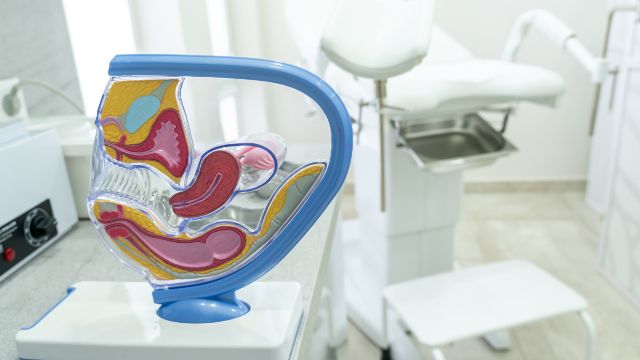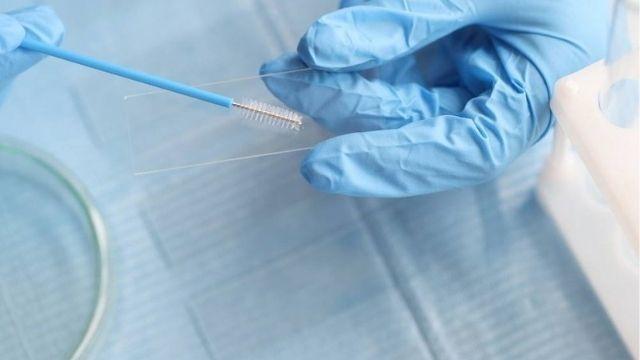Gynecologists in Delhi

Who is a gynecologist?
A gynecologist is a person who is trained and an expert in the female reproductive system. With a certified medical qualification, he/she can be distinguished as a gynecologist.
Areas of women’s health include pregnancy, childbirth, inability to conceive(fertility problems) lower abdominal pain, urinary infection, menstrual problem, sexual health, sexually transmitted diseases, gynecologic malignancies. A gynecologist is an expert in these areas, and you will find all the solutions to your problems from a gynecologist.
Everything You Need to Know About Gynaecologist
What They Do | Problems & Conditions | When to see | Tests & Process | What to Expect | Services | Medical condition
What does a gynecologist do?
A gynaecologist is an expert in women’s reproductive system, and they diagnose any problem related to reproductive health. They conduct and manage surgical procedures and medical issues which affect the urological system and women’s reproductive system.
Gynecological problems and conditions
Common gynecological problems include genital tract or vaginal infection, ovarian cyst, pelvic pain, vulva, and vaginal skin disorder, polycystic ovarian syndrome (PCOS), uterine fibroids, abnormal hair distribution, and acne among female. A major gynecological problem is a menstrual disorder associated with heavy bleeding, irregularity and menstrual pain, and premenstrual syndromes. Besides she also helps in the diagnosis and treatment of precancer and cancers of the reproductive system of females.
Sub Treatments For Gynecology
We are one of the Best IVF Clinic in Delhi NCR!
51.8K
Subscribers
4.6 (383 reviews)
4.5 (409 reviews)
3.5 (254 reviews)

5 Out Of 5
When to see your gynecologist?
Women suffering from acute gynecological problems are expected to visit a gynecologist. Women most commonly visit for pregnancy planning and pregnancy care, which requires regular visits to a gynecologist. Besides, one needs to visit for infections of private parts ( vagina and vulva) and urinary infections.
Menstrual irregularities, both light and heavy bleeding, with bleeding in between periods or bleeding after intercourse and severe periods of pain or pain during intercourse warrants a gynaecologist’s attention.
One needs to consult before starting oral pills so that she can screen for any risk factors. Procedures such as Copper T, insertion, Mirena insertion, Vaginal rings and Implanon insertion and lastly laparoscopic tubal blockage (sterilization,) which is permanent contraception requires visits to a gynaecologist.
Pelvic floor disorder such as pelvic organ prolapse that is the uterus is coming out of the vagina,, urinary incontinence or leakage, frequent urinary tract infection, and urodynamic testing knowledge also ask for a specialist’s help.
Problems related to infertility, hormonal treatments during menopause and post-menopausal bleeding, and diagnosis of gynaecological cancer also demand a gynaecologist’s attention.
Standard gynecological tests and process
Sometimes people with or without symptoms may require standard tests advised by the gynaecologist assessing general wellbeing and screening to rule out any cancer-related changes. Such tests and procedures are:
- To detect cancer for the cervix, which is the lower part of the uterus, cervical cell or cytology testing known as Papanicolaou smear or Pap smear is done.
- To detect breast cancer, ultrasound both breast or mammography may be done.
Screening for Cervical cancer requires the following tests for its diagnosis:
- Papanicolaou Smear ( PAP Smear): Gynaecologists takes fluid from the surface of the cervix and then Cells from the cervix are examined under the microscope to determine whether the cells are normal or abnormal may be cancerous. It is assessed by gynae Whether treatment is essential or not.
- Human papillomavirus (HPV) test: Certain strains of the HPV virus can lead to cervical cancer. A sample from the cervix is examined to detect whether the presence of cancer-causing strains of the HPV virus.
Biopsy: A process in which a small tissue sample from the vulva, vagina, lining of the uterus or the cervix is taken and then examined under the microscope. It is recommended in conditions when:
- Some area in the genital tract looks abnormal, and the doctor takes a sample from it.
- The doctor cannot detect anything abnormal in the vulva during physical examination or cancer of the vulva is suspected; a biopsy of the vulva is initiated.
- There is abnormal bleeding from the uterus, and uterus cancer is suspected, and it is essential to check the lining of the uterus for which biopsy from the uterine lining is taken.
What to expect during your checkup
The doctor may use an instrument known as the speculum to examine the vagina and the cervix. A small brush may be used to take the sample from the vagina during the pap test. The doctor may also look into the vagina by inserting two lubricated fingers inside the vagina and the cervix. Questions regarding sexual activities based on medical grounds is expected to be asked.
What services do gynecologists provide?
Gynecologists are trained physicians who deal with several women’s sexual health-related issues. They perform services like:
- Hysterectomy Both open and laparoscopic surgery.
- Normal and Assisted vaginal birth ( vacuum and Forceps Delivery).
- Cesarean childbirth.
- Laparoscopic and Open surgery for treatment of Endometriosis.
- Surgery of ovarian cyst and uterine fibroids.
- Surgery to repair pelvic organ injuries.
- Tests and treatment for sexually transmitted diseases.
- Breast cancer screenings.
- Infertility counselling and treatment.
Medical conditions treated by a gynecologist
- Menorrhagia: excessive menstrual bleeding where more than 80ml of blood is lost in one cycle or bleeding phase is more than seven days.
- Metrorrhagia: Abnormal or irregular menstrual cycle.
- Polycystic ovarian syndrome: Condition of hormonal imbalance where there are Multiple small water-filled cysts in the ovary which may lead to irregular menstruation, acne, excessive facial hair, weight gain and also hampers fertility.
- Dysmenorrhoea: Painful menstruation.
- Hirsutism: The presence of a male-like pattern of hair growth in females is Hirsutism.
- Virilization: Low pitched voice and muscular body like men present in female.
- Fibroids: Solid non-cancerous tumour of the uterus.
- Ovarian – Cysts or Blood filled Cyst known as Endometriosis are treated by medicines or surgery.
- Uterine prolapsed: Downward descent of uterus due to loss of uterine support due to which uterus may come into the vagina or outside the vagina.
- Postmenopausal bleeding: Here woman suddenly has vaginal bleeding more than one year after stopping her periods. It should never be ignored as it may be an early sign of uterus cancer.
- Pelvic inflammatory disease or infection or inflammation of pelvic reproductive organs.
Gynecology Hospital in Delhi
Our Gunjan IVF World Clinic is one of the best in Delhi and the surrounding areas. We offer a wide range of women’s health services. We help women of all ages with gynecological problems with our good women’s checkups. We manage a variety of women’s health issues, including urinary incontinence, pap smears, colposcopies, low AMH, endometriosis, fibroids, and Much More.
Gunjan IVF World is very much efficient enough to treat all the gynecological problems of a woman with the best facilities. The team of experts at Gunjan IVF World is one of the most reputed and well-known teams. You can contact us anytime without any hassle for an appointment.
Our Expert Team
Dr. Gunjan Gupta Govil
Founder & Director
Founder, Director & Gynaecologist with specialization in IVF, Infertility & Laparoscopy of 20+ years of experience.
(20+ years of experience)

Dr. Pradyot Kumar
Founder, CEO and a specialized Neurosurgeon who is an expert in complex Brain and Spine surgeries.
(25+ years of experience)

Mr. Gaurav Singhai
COO and an entrepreneur who co-founded Gujan IVF world along with Dr Gunjan and Dr Pradyot.
(5+ years of experience)

Paritosh Sarkar
Embryologist
He is a highly experienced and successful Embryologist with more than 10 years of experience in IVF.
(10+ years of experience)
Patient Guide
Along with treating our patients, we also guide them with the help of our educational blogs and videos.
Educational Blogs

Why do blastocyst not implant?
The reasons for an unsuccessful implantation are very uncommon and rare as well. Blastocyst provides a greater chance of becoming pregnant therefore the procedure is handled properly as well.

What happens after blastocyst transfer?
Before jumping to the immediate question first let’s have a small brief of what is blastocyst transfer. Blastocyst transfer is the transfer of embryos that have achieved a higher stage of development.

Can blastocyst fall out?
Maximum patients worry about what they can do or cannot do after an embryo transfer. They have the fear that if they do something wrong, the embryo would not attach or fall out.
Educational Videos

What is TORCH test in infertility and why is it done?
There are numerous tests that are available to infertile couples that are recommended by some doctors, which might help them determine the cause of their infertility. One such test is the TORCH test.

What is Prolactin Hormone?
Prolactin is a hormone produced by the pituitary gland present at the brain’s base. It is best known for its role in lactation, or milk production, in breastfeeding women.However, Prolactin also plays other important roles in both men and women, such as regulating the immune system, stimulating the growth of new blood vessels, and influencing behaviour and reproductive function. In this blog, we will explore what Prolactin is, how it works, and what happens when there are imbalances in prolactin levels.

Frequently Asked Questions about Low AMH
Primordial and Preantral follicles produce AMH. So the AMH level indicates the number of eggs or egg reserves you have in your ovary. Putting simply, if your AMH level is low, then the number of eggs in your ovary is less.
Frequently Asked Questions
Does testicular temperature have an impact on male fertility
IVF specialists of the best IVF centre in Ghaziabad – Gunjan IVF World share an informative blog on one of the most ignored factors of male infertility. It is an alarming fact to...
Is male menopause a myth or reality ?
IVF specialists of the best IVF centre in Ghaziabad – Gunjan IVF World debunk the myths about male menopause through this informative blog Menopause as a term is extremely common...
Can smoking cause fertility problems in men?
IVF specialists of the best IVF centre in Ghaziabad – Gunjan IVF World share valuable insights on how smoking leads to infertility in men. Becoming parents is one of the greatest...
Media Coverage

Most Trusted and Transparent IVF Center In Delhi NCR
Published on 29th Aug

Best IVF Centre In U.P
Published on 29th Aug

India Greatest Brand & Leaders Award
Published on 29th Aug

Most Trusted and Transparent IVF CenterIn Delhi NCR
Published On: 29th Aug

Best IVF Centre In U.P
Published On: 29th Aug












